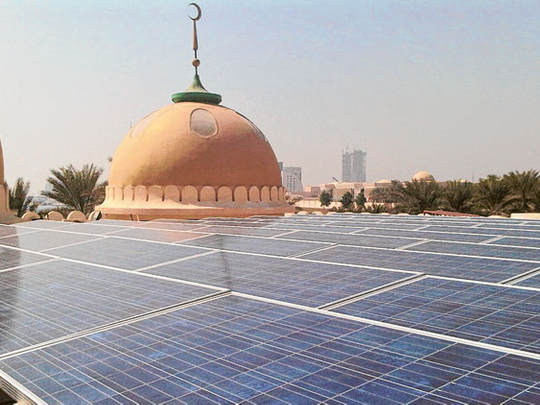
Global decision makers have long prioritised energy policies, and not simply in terms of providing fuel for transportation, factories and heating. Strategic issues, such as security, development and provision of food, are paramount for now and the future.
In light of this, the Emirates Centre for Strategic Studies and Research's (ECSSR) annual energy conference, which took place in Abu Dhabi recently, is all the more important. The event, which brought speakers and delegates from across the world, touched on many of the latest developments in the energy field.
One of the most important issues addressed at this year's event was the declining stocks of fossil fuels, on which Arab countries depend.
Adnan Amin, Director General of the International Renewable Energy Agency (Arena), commented that this fact makes energy security impossible and underlines the need to develop alternate energy systems.
Amin, a World Bank adviser, pointed to a looming acute oil crisis, which is illustrated by an ongoing rise in oil prices. Energy security has become a key priority for all countries that are concerned with promoting healthy economic growth while maintaining stability and sustainable development.
The rise in investment in alternative energy markets demonstrates that a potential energy crisis has not escaped investors. Between 2004 and 2010, investment in renewable energy has increased four times, reaching more than $ 271 billion. This despite the global financial crisis.
New sources
The world is in a race against time to find alternative sources of energy.
These new approaches to find alternative energy sources come not only in light of the shortage of fossil fuels, but amid a rising demand for energy resulting from population growth and high rates of development, especially in emerging countries.
But available alternative resources, such as those addressed at the conference, are limited and each has its own properties, characteristics and risks.
Nuclear energy, for example, has dangers and a negative impact on the environment, while solar energy is clean and secure, but is very expensive.
With regard to Arab countries, including the GCC states, they will face growing problems in the management of supply and demand for energy resources, especially given that local demand is set grow significantly over the next two decades.
Oil in the Gulf is not only a source of energy and income, but is used as a tool of national industrialisation, a point raised by Steven Herzog, lecturer at the University of London.
Therefore, these developments pose real challenges to oil-producing countries, which cannot be faced without coordination between countries, whether in the area of marketing fossil energy sources or developing alternative energy sources.
In his closing speech, Dr Jamal Sanad Al Suwaidi, Director General of ECSSR, emphasised the importance of establishing groups of renewable energy companies in the GCC countries collectively, provided that government support will continue for these groups by issuing the necessary legislation for regulating and developing them.
It is a major issue for Western countries too, as a recent report by the CNA military advisory board illustrated recently. The report urges the US to cut oil use by 30 per cent over the next decade to reduce grave national security risks.
The report claims that Washington's reliance on imported oil is a "weak point in national security," considering that the closure of the Strait of Hormuz for 60 days, for example, would affect prices and jobs in the US.
The fact that this report came out at the same time as the conference in Abu Dhabi illustrates that the struggle for energy resources is, now more than ever, a global problem.
This issue calls for more cooperation and coordination between countries and homogeneous economic blocs, such as the GCC, in order to develop clean and renewable energy sources and find harmony between the requirements of sustainable development and growing need.
Dr Mohammad Al Asoomi is a UAE economic expert and specialist in economic and social development in the UAE and the GCC countries.












